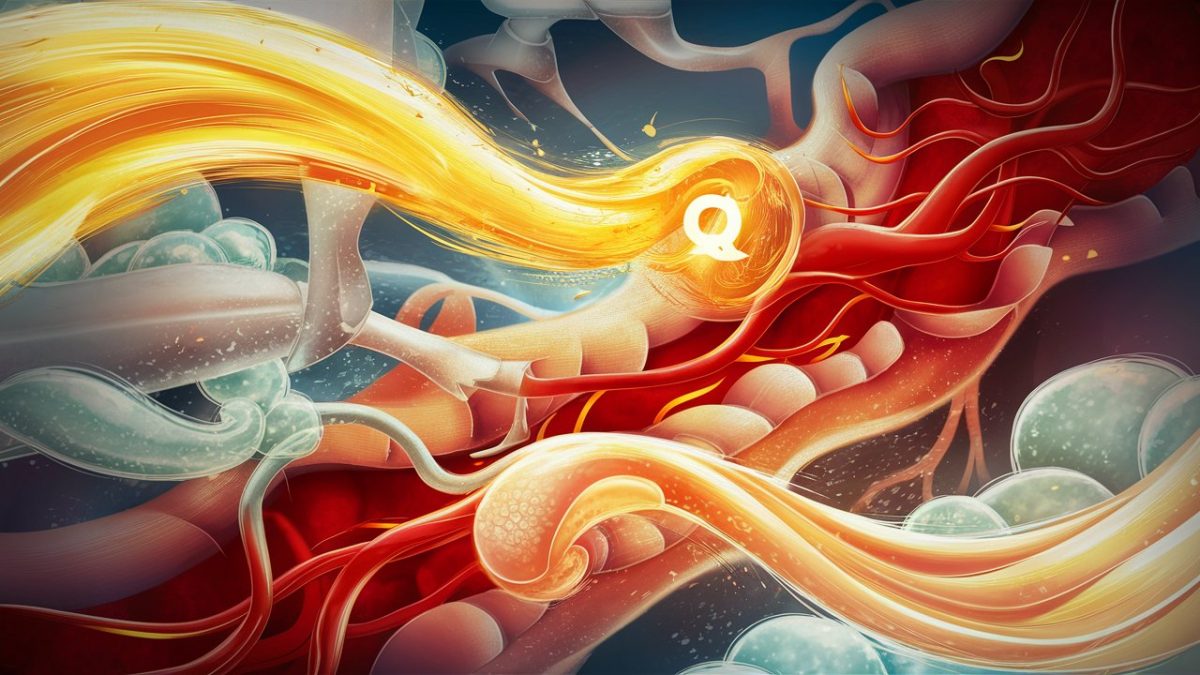Introduction
Traditional Chinese Medicine (TCM) is a holistic system of health and healing that has been practiced for thousands of years. At the core of TCM is the belief that the body’s vital energy, known as “Qi” (pronounced “chee”), and the nourishing substances “Blood” and “Body Fluids” are fundamental to maintaining health and preventing disease. This article delves into the concept of Qi, Blood, and Body Fluids in TCM, exploring their roles and interrelationships in sustaining life and health.
Qi: The Vital Energy
Understanding Qi
Qi is the life force that flows through all living things in TCM. It is the energy that powers the body’s functions and is essential for growth, development, and the maintenance of health. Qi is not just a concept but a tangible aspect of health that can be influenced by diet, lifestyle, and emotional states.
The Functions of Qi
- Regulation: Qi regulates the body’s internal environment, ensuring that all systems work harmoniously.
- Warming: Qi warms the body, protecting against external cold and maintaining internal warmth.
- Defense: Qi acts as the body’s first line of defense against pathogens and disease.
- Lubrication: Qi helps to moisten the body’s tissues and organs, preventing dryness and promoting smooth movement.
Cultivating and Balancing Qi
TCM practices such as Qigong, Tai Chi, and acupuncture are designed to cultivate and balance Qi. Breathing exercises, meditation, and certain dietary habits also play a crucial role in maintaining healthy Qi levels.
Blood: The Nutritive Substance
The Role of Blood
Blood in TCM is considered a tangible substance that carries nutrients and oxygen to the body’s tissues. It is also responsible for moisturizing and nourishing the body, as well as maintaining the mind and spirit.
Blood and Qi Relationship
Blood and Qi have a symbiotic relationship:
- Nourishment: Qi helps to move blood through the vessels.
- Production: Blood provides a medium for Qi to reside and function.
Maintaining Healthy Blood
A balanced diet rich in nutrients, adequate rest, and emotional well-being are essential for maintaining healthy blood. TCM also uses herbal remedies to support blood health and treat conditions related to blood deficiency or stagnation.
Body Fluids: The Hydrating Essence
What Are Body Fluids?
Body fluids in TCM include all the liquids in the body, such as saliva, sweat, and the fluids that nourish the joints and brain. These fluids are crucial for hydration, temperature regulation, and lubrication of the body’s systems.
The Balance of Body Fluids
Imbalances in body fluids can lead to dryness, which can affect the skin, hair, and internal organs. TCM emphasizes the importance of staying hydrated and using herbs and foods that nourish body fluids.
The Interplay of Qi, Blood, and Body Fluids
The Integrated System
TCM views Qi, Blood, and Body Fluids as an integrated system where each component supports and influences the others. A deficiency in one can affect the others, leading to a cascade of health issues.
Common Imbalances
Imbalances can manifest as:
- Qi Deficiency: Fatigue, poor immunity, and lack of vitality.
- Blood Deficiency: Dizziness, pale complexion, and dry skin.
- Fluid Imbalance: Dry mouth, constipation, and joint stiffness.
Treatment Approaches
TCM treatment for imbalances in Qi, Blood, and Body Fluids involves a combination of herbal medicine, dietary adjustments, acupuncture, and lifestyle modifications to restore harmony.
Case Studies
Case 1: Qi Deficiency
A patient presenting with chronic fatigue and frequent colds may be diagnosed with Qi deficiency. Treatment would focus on Qi-tonifying herbs and practices to strengthen the body’s energy.
Case 2: Blood Deficiency
A patient with symptoms such as dizziness and pale skin may be treated with blood-nourishing herbs and dietary changes to improve blood production and circulation.
Case 3: Fluid Imbalance
Dry skin and constipation could indicate an imbalance in body fluids. Treatment might include hydrating herbs, increased fluid intake, and lifestyle changes to support fluid production and retention.
Conclusion
The concepts of Qi, Blood, and Body Fluids in TCM provide a comprehensive framework for understanding and addressing health and disease. These elements are not just theoretical but have practical applications in diagnosis and treatment. By understanding the importance of maintaining balance in Qi, Blood, and Body Fluids, individuals can take proactive steps towards a healthier lifestyle and improved well-being.
TCM’s approach to Qi, Blood, and Body Fluids offers a unique perspective on health that emphasizes balance, prevention, and the interconnectedness of all aspects of life. Embracing these concepts can lead to a deeper understanding of one’s health and a more holistic approach to wellness.

